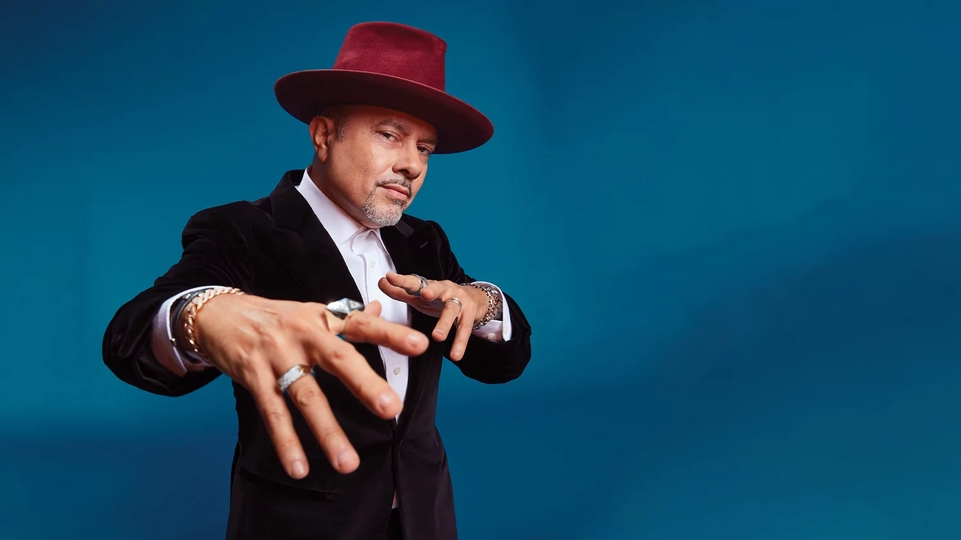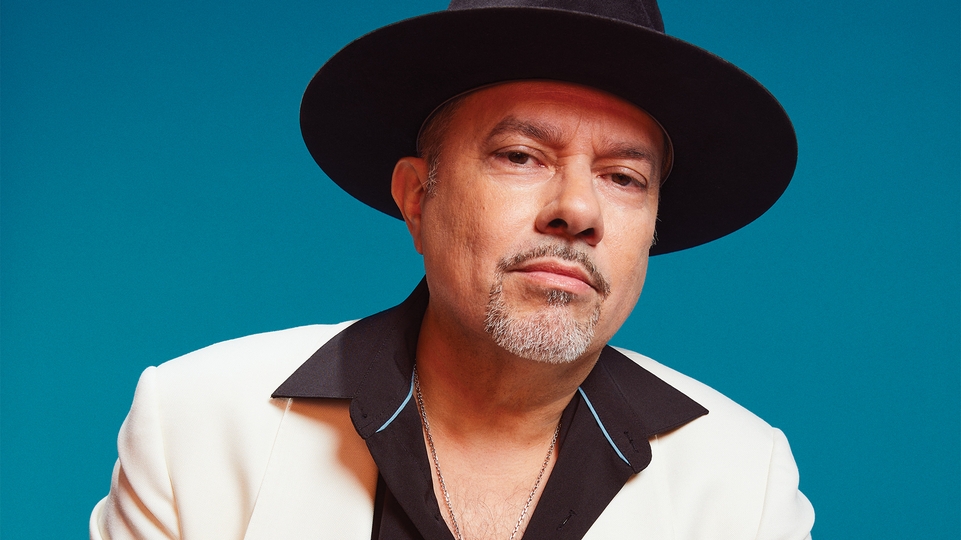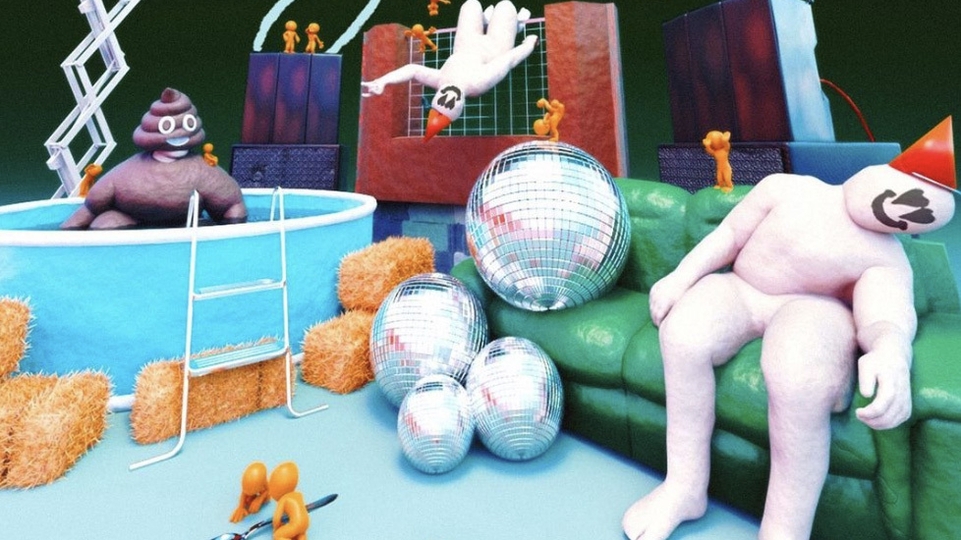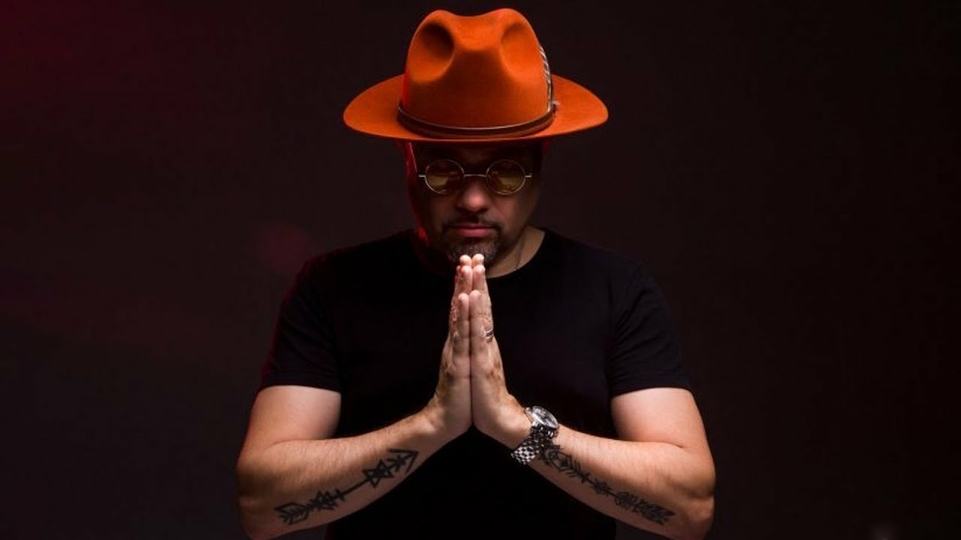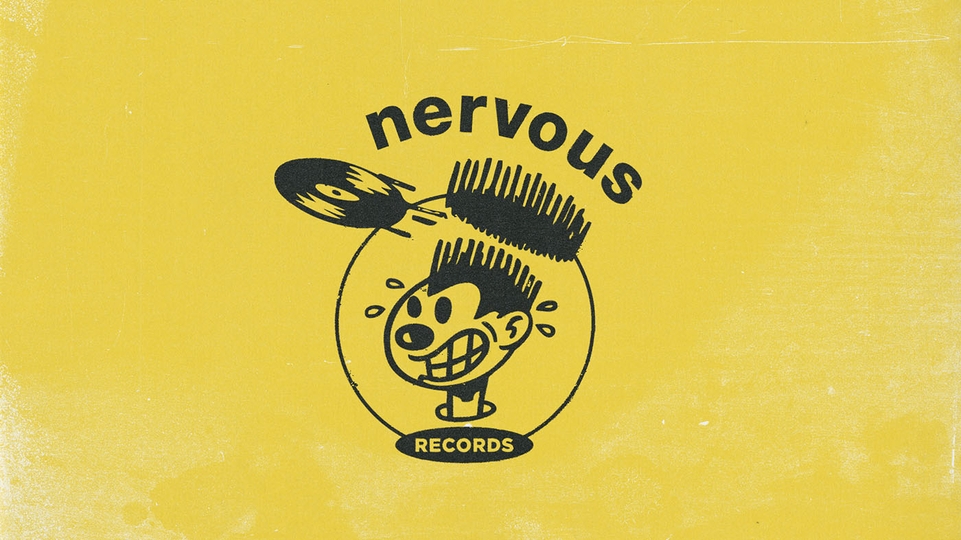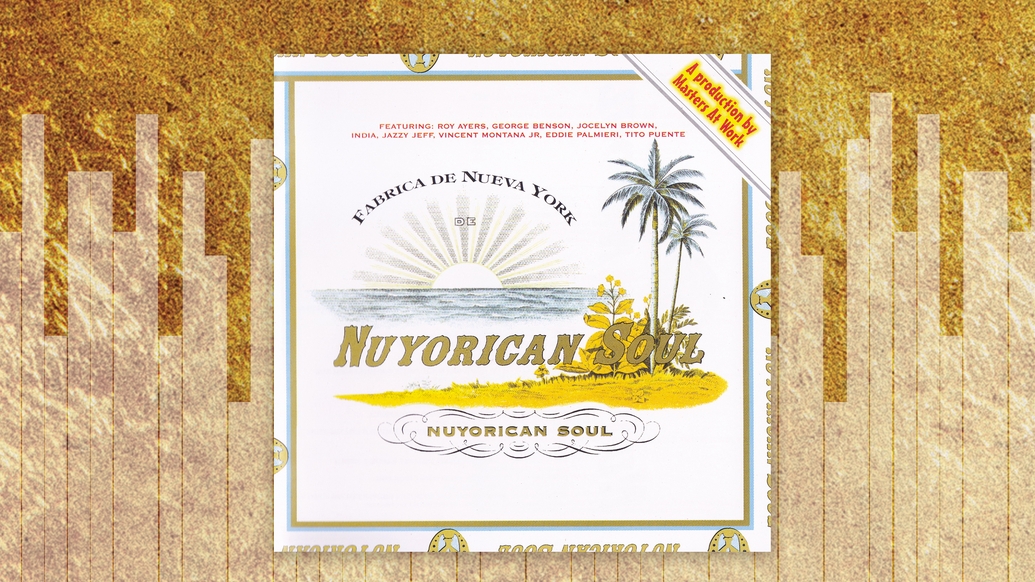
How Masters At Work's 'Nuyorican Soul' took the duo back to their Latin roots
Ben Cardew looks back at how Louie Vega and Kenny “Dope” Gonzalez’s rapturous 1997 homage to their musical roots
Two decades before Daft Punk rolled back the technological years on ‘Random Access Memories’, another iconic house duo went back to their roots. Kenny “Dope” Gonzalez and Little Louie Vega, aka Masters At Work, were the kings of New York house music in the mid-1990s, a time when the city’s house scene was arguably at its peak. And Nuyorican Soul — both project and album name — was the jewel in their crown, an uber-lush vision of dance music that reeked of expensively cut clothing and vibrated with life, recorded, much like ‘Random Access Memories,’ with an elite team of studio musicians and majestic special guests. Disco is at the heart of both albums, its steady four-four pulse the glue that binds them together. But whereas Daft Punk joined disco with soft rock, ’80s pop, and just a hint of prog, Masters At Work added salsa spice, jazz swing, and soul glow to the disco blueprint, producing a percussive tribute to their hometown.
Nuyorican Soul debuted as a project in 1993 with ‘The Nervous Track,’ a masterpiece of Latin house music that combined eerie chords with jazzy breakbeats, congas, and brass stabs. The track was apparently inspired by watching jazz dancers at the UK soul institution The Southport Weekender, with Gonzalez — possibly the best drum programmer in house music — coming up with the beat in his head there and then. Speaking to Laurent Fintoni for his book Bedroom Beats & B Sides, Vega said that when Gonzalez presented the beat to him, he immediately knew it was something very different.
‘‘Dude, we can’t put that on that remix,’’ he told his partner of the Ultra Naté remix they were working on at the time. ‘‘It’s a different thing, man. It’s a whole new thing.’’
Sure enough, ‘The Nervous Track’ was unlike anything else in house music. House had long borrowed from Latin and jazz, but this was typically limited to adroit sampling or the odd keyboard pattern. ‘The Nervous Track’ sounded utterly alive, the perfect midpoint between the electronic groove of house and Latin music’s live swing. It has been called the first broken-beat song — predating the West London sound of syncopated beats and jazz-funk chords by a good half decade— and named as an influence on the nascent drum & bass scene, with Roni Size and Goldie among the song’s admirers.
MAW followed ‘The Nervous Track’ in 1996 with ‘Mind Fluid,’ the second Nuyorican Soul release. It continued in the Latin / jazz / house footsteps of its predecessor, but with added melancholy, thanks to Vega’s classically-minded synth lines. By that time, the recording of the group’s debut — and, in fact, only — album was in full swing, although neither single appears on the original version of ‘Nuyorican Soul,’ which was released at the start of 1997. (Both tracks do appear on the 2006 ‘Nuyorican Soul’ reissue, which is the essential version of the album.)
The eclecticism of Nuyorican Soul can be seen as a product of Gonzalez and Vega’s New York roots, a reflection of life in one of the world’s most gloriously cosmopolitan music cities. Vega’s father was a jazz saxophonist, and his uncle was singer Héctor Lavoe of the Fania All-Stars. “I guess all of my influences come from having an uncle who was a huge salsa legend,” Vega told Traxsource. “I was brought up with the street version of Latin music; it was real, raw, from the streets, and you had these guys creating on the spot with spoken word.”
Gonzalez came from more of a hip-hop background, as he explained to Shawn Reynaldo in a 2012 interview for Red Bull Music Academy. “I was playing reggae and hip-hop, primarily,” he said. “That’s where it started for me. I graduated to actually trying to make beats, instrumentals to play in my sets. I would record them on reel-to-reel and play them at the parties.”
Nuyorican Soul was, according to Vega, an attempt to make music that combined the disparate — and yet interconnected — sounds they heard growing up in New York. “We were brought up in a place where we were exposed to hip-hop, Latin music, disco, R&B, classics, and jazz,” he told Orriginal. “So our slogan was that we were into all kinds of music. We’ve always taken chances and tried different things, and I think that’s what kept us going and has stopped us getting bored. Nuyorican Soul came from that feeling.”
This epic ambition was matched by the album’s heroic scope. Recorded over 20 months, ‘Nuyorican Soul’ marked a significant step up in sound from the already ambitious fusion of ‘The Nervous Track’ and ‘Mind Fluid.’ Singers on the album include disco / house star Jocelyn Brown, Roy Ayers, long-time MAW associate India, and renowned jazz guitarist George Benson, while Latin music legends Tito Puente and Eddie Palmieri were among the musicians to contribute to the work. Vincent Montana, Jr., known as the Godfather Of Disco for his achievements with MFSB and the Salsoul Orchestra, worked on string arrangements, while Jazzy Jeff added scratches. Nuyorican Soul’s version of ‘Runaway,’ a cover of the Salsoul Orchestra classic, had four backing singers, baritone saxophone, bass, bass trombone, two cello players, live drums, flute, French horn, guitar, percussion, two trombones, two trumpets, two violas, 12 violins, and a stunning lead vocal by India. Bedroom house, this was not.
The album, unsurprisingly, is a gorgeous listen, a triumph of the very best musicianship that money can buy, taking place under the watchful eye of two of the world’s leading house music producers. You might, perhaps, criticize ‘Nuyorican Soul’ for relying too heavily on covers that reproduce both the arrangement and melody of the original songs, including Rotary Connection’s ‘I Am The Black Gold Of The Sun,’ Bob James’ ‘Nautilus’ and Roy Ayers’ ‘Sweet Tears.’ But Gonzalez and Vega inject just enough modern production knowhow into proceedings to take the album out of the realm of the purely retro; house music is present throughout ‘Nuyorican Soul’ like a guiding light, an almost subliminal nod to MAW’s production history. Besides, it is hard to complain too much when faced with a song as utterly luxurious as ‘I Am The Black Gold Of The Sun,’ the Rotary Connection original still something of a connoisseur’s choice in 1997.
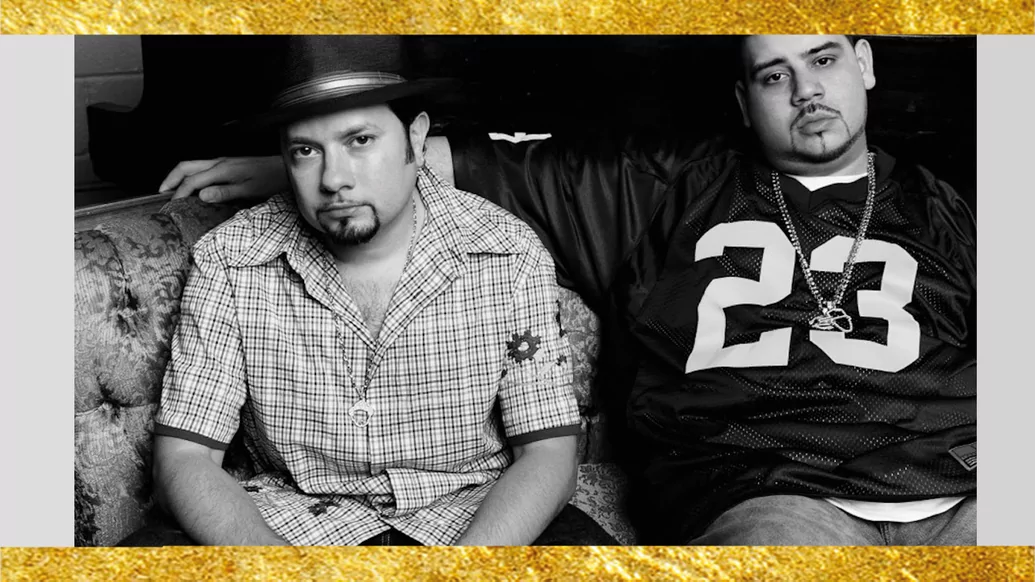
These cover versions feel very much in the celebratory spirit of ‘Nuyorican Soul,’ an album that is a showcase for everything that Gonzalez and Vega hold dear. You can almost feel their delight at getting Roy Ayers to contribute vibraphone or George Benson to play guitar on their album — and MAW are smart enough to give their guests room to shine, rather than manhandling their contributions into an existing blueprint.
‘Nuyorican Soul’ is a work of profound musical respect, a Motown Revue for the house music age. And much like a Motown Revue, MAW usher all of their musical flavors into one coherent package. What, you might wonder, unites Jazzy Jeff’s scratching and George Benson’s guitar? Where is the crossover between Tito Puente’s Latin percussion and a house groove? ‘Nuyorican Soul’ may not be the only answer. But it feels like the best possible answer for your ears. Rarely have different strands of music sounded so unified and unifying, as musicians from across the generations reach out to each other via the magic of house.
There is also some serious songwriting at work on ‘Nuyorican Soul.’ ‘It’s Alright, I Feel It!,’ written by MAW, Jocelyn Brown, and Bennie Diggs, is an ecstatic eruption that rivals any of the disco / funk classics the group cover, a work of liberation that marks the perfect sweet spot between house, Latin music, and disco. ‘Gotta New Life’ is a slinky jazz beast, and ‘You Can Do It Baby’ (featuring Benson) is like a guitar-inspired redux of ‘The Nervous Track’ that seems to under stay its welcome at eight minutes and 43 seconds.
The original ‘Nuyorican Soul’ album was a brilliant piece of work in its own right. But what made the Nuyorican Soul project genuinely exceptional was the combination of that album and everything around it, the songs that came before and the remixes that arrived after. MAW had taken inspiration from everything from hip-hop to house, drum & bass to disco, in making the Nuyorican Soul album. And in remixing the record, it was time for pay back. Over the three singles from ‘Nuyorican Soul,’ artists from the worlds of drum & bass (4hero and Roni Size), hip-hop (Q-Tip), and house (Armand Van Helden, Mood II Swing, Mousse T, and Masters At Work themselves) re-worked a number of the album’s best songs, all of them bringing their A-game to the project.
The singles from ‘Nuyorican Soul’ may, in fact, be the perfect remix package, mixing generic variation with absolute faith in the strength of the original songs. Roni Size takes the gorgeous undulating keyboard line from ’It’s Alright, I Feel It!’ and turns it into a drum & bass roller that seemed to exist somewhere underneath the skirts of the original song; Armand Van Helden, then in his pomp, zeroes in on Gene Perez’s elastic bassline on ‘Runaway’ and builds a song around it, allowing the bass to live up to its potential; and 4hero flip ‘I Am The Black Gold Of The Sun’ into a stunning, sun-rise drum & bass anthem that is among the best things either party has ever put their name to.
Credit for this must go to the remixers. But their success also comes from the quality of the source material that Vega and Gonzalez had recorded, the gilded layers of instrumentation from a band of unbelievable musical finesse. When put together in one package — as almost happened on the 2006 reissue of ‘Nuyorican Soul,’ which adds Van Helden’s remix, three MAW flips, the exquisite ‘India’s Ambient Dream’ mix of ‘Runaway,’ ‘Mind Fluid,’ ‘The Nervous Track,’ and B-side ‘Makes Your Nature Rise’ to the original album — the effect is like a club-land cornucopia, where all dance life is to be found. The combination of album and remixes, in fact, is a bit reminiscent of Primal Scream’s ‘Screamadelica,’ for the impeccable musicality and production scope, or a ‘Random Access Memories’ redux, if Daft Punk had got 2013’s best remixers to turn their hands to their wares.
In a UK then in a fever for New York house, ‘Nuyorican Soul’ sold well, reaching number 25 in the main pop charts; in the US, the album charted high on both jazz and hip-hop / R&B rundowns, testament to the record’s scope. In the clubs, meanwhile, the various ‘Nuyorican Soul’ remixes were ubiquitous throughout 1997, whatever musical genres you were into.
Gonzales and Vega could have made hay with a followup — but they never released another album under the Nuyorican Soul name, apparently put off by the expense of touring the band. The final Nuyorican Soul track was a 1998 cover of Alicia Bridges’ ‘I Love The Nightlife,’ billed to Nuyorican Soul & India, that was produced for the 1998 movie ‘The Last Days Of Disco,’ where it sat snugly alongside disco classics from the likes of Diana Ross and Chic.
Masters At Work would continue to go from strength to strength, and in 2022 they remain one of the most popular acts in house music, a globe-trotting DJ duo in demand from Sarajevo to South Africa. But ‘I Love The Nightlife’ was a fitting end for a project of the platinum quality of Nuyorican Soul, a kiss off to the Nuyorican name that proved, once and for all, that house music producers could mix it with the disco elite.
